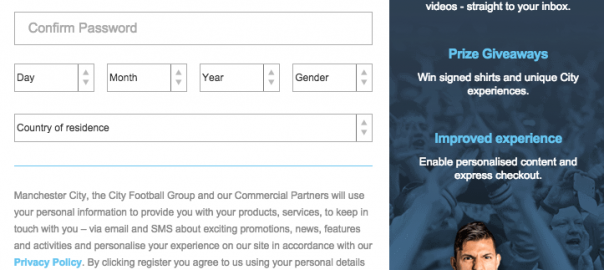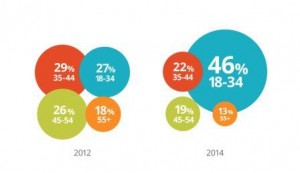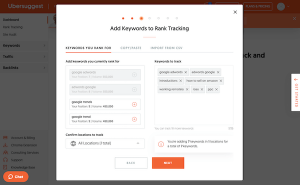Having rich, accurate data about current and potential customers is one of the most important priorities for any business. Marin Software found that creating campaigns based on a deeper understanding of audiences and investing in more sophisticated technology to gain and act on customer insights are two of the top five priorities for marketers in 2015. Too often, however, customer databases are full of outdated and erroneous information. When this data is used in marketing efforts, the results can be frustrating for consumers, and disastrous for brands.
For example, emailing a recently-divorced man discount codes towards romantic getaways or marriage retreats will probably not go over so well. Not only does the individual not have a current need for the promotion, but the experience could also lead to the user being extremely dissatisfied with the business. According to a recent Gigya survey, after receiving irrelevant information from a brand, 67% of respondents unsubscribed from the email list, 43% of respondents ignored all future communications, and 20% of respondents stopped buying products from the company altogether.
So why do these kinds of inaccurate and alienating marketing campaigns still happen? Often times, the data informing marketing comes from third-parties in order to help fill out brands’ customer profiles. Whether the third-party data comes from brokers, tracking cookies, or more sinister means, it’s inaccurate, and is preventing businesses from building authentic, trusted relationships with consumers.
Let’s touch on three reasons why organizations need to stop relying on third-party data, and explore how first-party data, acquired with permission directly from consumers, can make marketing more relevant and customized while respecting user privacy.
Third-Party Data is Invasive
As a consumer, have you ever received an automated email from a newsletter you never signed up for? Maybe you’ve received a catalog in the mail from a business you’ve never even heard of? This event was most likely triggered by an organization buying your email or physical address, and potentially other information about you, from a data brokerage firm.
Data brokers capture billions of individual data points, often without clear permission, in order to produce detailed portraits of virtually every consumer and sell the information to other companies. What’s worse, the average consumer has no idea that his or her personal information is up for sale, an opaque and underhanded practice that disrespects user privacy rights. For example, if you’ve ever downloaded a free mobile app, you may not realize that, in certain cases, the app developer chose to make the app free because data from your phone is being tracked and sold to other companies (60 Minutes). In this instance, the app developer is essentially functioning as a data broker.
Rather than continuing to purchase and depend on third-party data at the risk of alienating or scaring consumers, businesses need to find ways to gain insights about their users in ways that imbue trust, not trepidation. By appropriately encouraging users to self-identify across websites and mobile apps, using either traditional registration or social authentication, brands can gain valuable, actionable insights about consumers and create direct relationships with their customers. Transparently disclosing exactly how consumer data will be used helps businesses gain even more credibility, and ultimately gives users a sense of comfort when sharing personal information.
The legendary Manchester City Football Club, for example, gives users several different options to engage with the brand. Clear benefits of registering with MCFC are listed on the account creation screen, in addition to an explanation of how personal information will be used and a link to the organization’s Data Protection Policy.
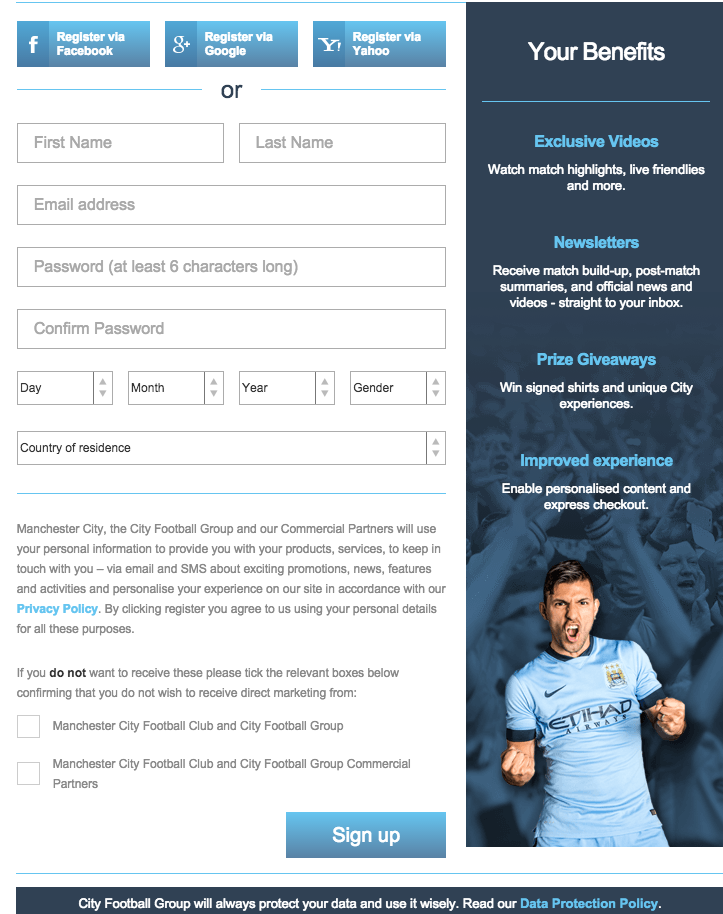
Third-Party Data Decays Over Time
Consumer data that is purchased from data brokers is static and does not evolve over time. Much like a new car being driven off the lot, third-party data loses value almost instantaneously. Because there is no direct or consenting relationship between data brokers and consumers, brokers have no way of even knowing if the data they are selling has changed. And why would they care? Data brokers are not incentivized to keep their consumer data updated; once an organization buys data from a broker, the transaction is complete.
Businesses should ensure they have a customer identity management solution in place that can automatically update user records without the need for IT resources. Songkick, for instance, sends users personalized, location-based concert alerts when artists that the users have liked on Facebook, iTunes, or Last.fm announce a tour date nearby. These customized experiences will foster better customer relationships, as well as increase conversions and clickthroughs. According to Jupiter Research, conversion rates improve 355%, leading to increased revenues of up to 781%, if businesses segment based on customer data.
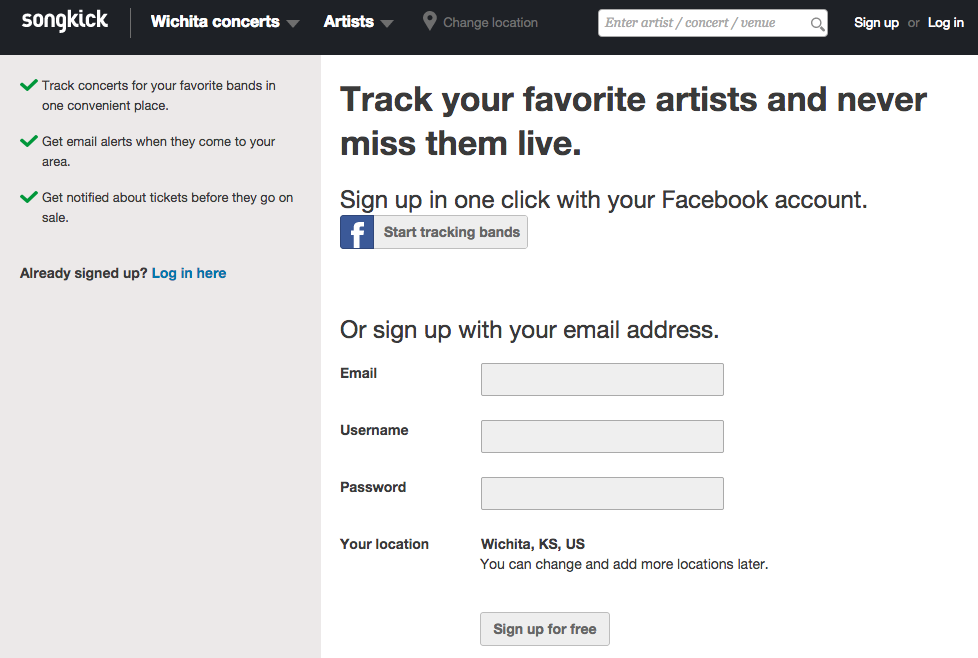
Third-Party Data is Wasteful
By using third-party data in marketing programs, businesses produce constant streams of irrelevant communications. Not only are these communications annoying to consumers, but their production is a waste for businesses in terms of money, time, resources, technology investments, and data integrations. According to research conducted by analytics firm Kognitio, companies waste $ 3.8 billion per year on irrelevant email marketing campaigns.
The financial investment would obviously be better spent incorporating social graph, purchase, behavioral, and psychographic data into existing customer profiles to produce a single customer view. By integrating accurate and up-to-date first-party data into marketing applications, brands can take personalization to a whole new level. In fact, shoppers actually want retailers to target them with personalized marketing messages. 80% of consumers like when emails sent by retailers recommend products based on previous purchases (Internet Retailer).
Consumer electronics powerhouse Best Buy sends messages based on customer purchase history and preferences. In the email below, the brand is recommending useful add-ons for a product that was purchased in the past. Links in the email go straight to the product pages for easy checkout, and the customer can even earn extra reward points by purchasing certain items.
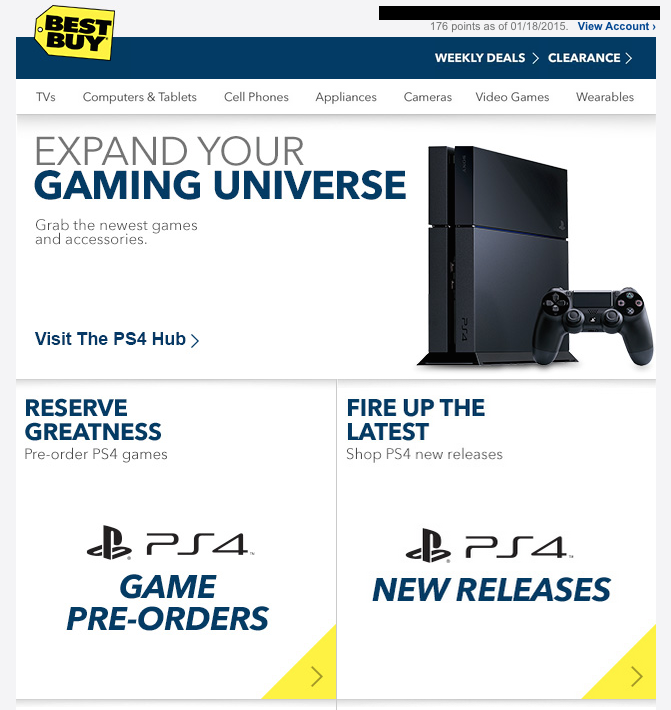
With the breadth of technologies available to businesses, third-party data should no longer be used to build out customer profiles. Not only is the exchange of consumer data without clear permission a violation of trust, but it also does a huge disservice to brands. To learn more about how organizations are responsibly collecting and leveraging first-party identity data, download our free eBook “Stop Using the Wrong Data: A Guide to Better Understanding Your Customers with First-Party Data.”
(225)
